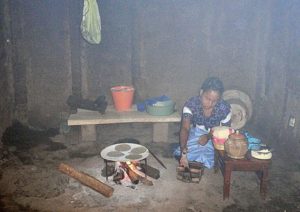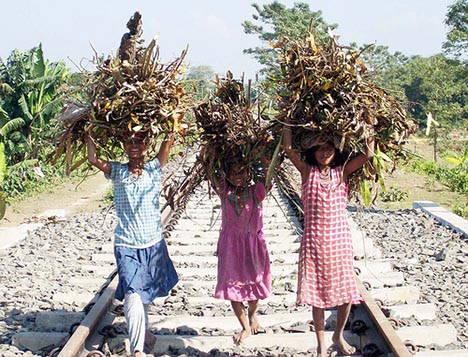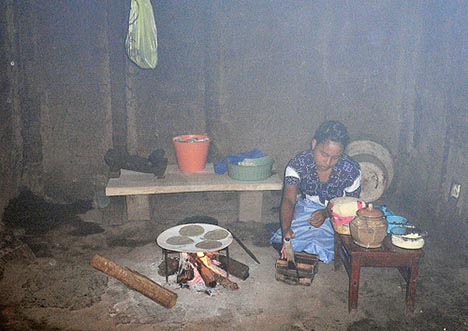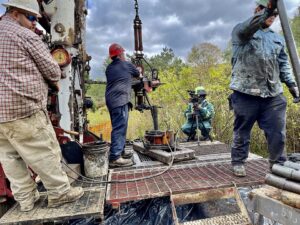
The United Nations Foundation and its partners at the U.S. State Department, the U.S. Environmental Protection Agency, and other institutions and organizations think so – at least, in part, which is why they’ve launched the Global Alliance for Clean Cookstoves. This new partnership between government agencies, non-profit organizations, international aid groups and corporations aims to replace 100 million dirty stoves in developing countries with cleaner versions by 2020.
How can a lowly cookstove play such an important role in the climate debate?
REDUCE BLACK CARBON: The traditional cookstoves used in Asia, Africa and parts of Latin America rely on “biomass” like wood, cow dung, and coal. When any of these fuels is burned, they produce soot, also known as “black carbon.” Biomass cooking accounts for 20 percent of the world’s emissions of black carbon, which some scientists believe is the second largest contributor to climate change after carbon dioxide.
Black carbon is so powerful because it is extremely effective at absorbing sunlight — 1 million times more effective than carbon dioxide (CO2), in fact. Black carbon warms the atmosphere and creates a “greenhouse effect” by absorbing thermal infrared radiation from the ground and within clouds. Plus, because it directly heats surfaces on which it falls and reduces the amount of sunlight surfaces reflect back into the atmosphere, black carbon accelerates the melting of Arctic sea and land ice, glaciers, and seasonal snow cover.

KEEP WOMEN AND CHILDREN SAFE: Cleaner cookstoves would keep women and children safer, too. Because women and children are primarily responsible for gathering fuel, they often have to walk great distances in dangerous, barren and conflict-ridden areas to scrape together the minimal amounts of fuel available. Cleaner cookstoves would reduce the demand for fuel and how often women would need to search it out, lessening the likelihood that they would become victims of rape and robbery.

Though the Alliance’s initial goal is to provide stoves to 100 million homes, the broader aim is to establish a sustainable market for clean cookstoves and cleaner fuel that would provide new economic opportunities that help build sustainable communities. So not only would cleaner cookstoves reduce climate change, improve public health, and safeguard women and children; they would also create local jobs as people learn to design, manufacture, and distribute the stoves in their communities.
As simple as it might sound to replace dirty stoves with clean ones, challenges abound. Not only do millions of new stoves need to be made and distributed, but people will need to overcome cultural barriers before they decide to use them. In some cases, women will need to learn how to cook somewhat differently; their husbands may need to learn to like different-tasting foods; and women used to spending their time looking for fuel may need to find other occupations.
Hopefully, through effective social marketing, engineering, appropriate technology, and creative collaboration among local groups and national and international institutions, the goal of “100 million by 2020” will be reached.
DONATE NOW!
The Global Alliance for Clean Cookstoves needs your support. You can help women and kids get cleaner cookstoves by donating today.
For more information on how climate change affects women, read this important report by the United Nations Population Fund and the Women’s Environment and Development Organization, titled “Climate Change Connections: Gender and Population.”
Here’s a list of “Top Ten Reasons To Take Climate Change Seriously.”
Here are ways you can reduce your own climate change impact.


















7 thoughts on “One Way to Solve Climate Change: Clean Cookstoves”
Timely article. Thanks! As the world sits in Cancun debating but not agreeing on ways to slow down climate change, “science fiction” ideas like geo-engineering begin to look like a viable option. We need more posts like this to see that options to mitigate climate change, like cleaner cook stoves, are right in front of our eyes, reachable, achievable and just waiting to be implemented. Thanks for reminding us!
What an interesting initiative. Although it does sound simple, I am sure the challenges of assimilating these new cook tops into existing cultures will be tough. I was wondering how people can help? Is this project fully funded?
I got to see the work an NGO is doing in the villages of India a couple years ago when I was there, and one of their projects included stoves powered by cow dung. Pretty cool … although it turns out that when you are using dung to power stoves, it also turns into a scarce resource!!
Diane,
I’ve heard of this initiative but I have to say it wasn’t until I read your post that I really UNDERSTOOD why cleaner cookstoves are so important! Thanks to God this holiday season for your gift of words – helping to communicate such important news so that finally, we can take action!
Lynn, Yes, this is an action people all over the world can support. Thanks for helping to spread the word.
in kenya through ifad project, we have been demonstrating improved low emission stoves thro’ approprite technology.Very simple and over 80% harmful fumes extracted;great energy conservation;kitchen accidents reduced; and love enhanced between couples!
I agree with this
Comments are closed.